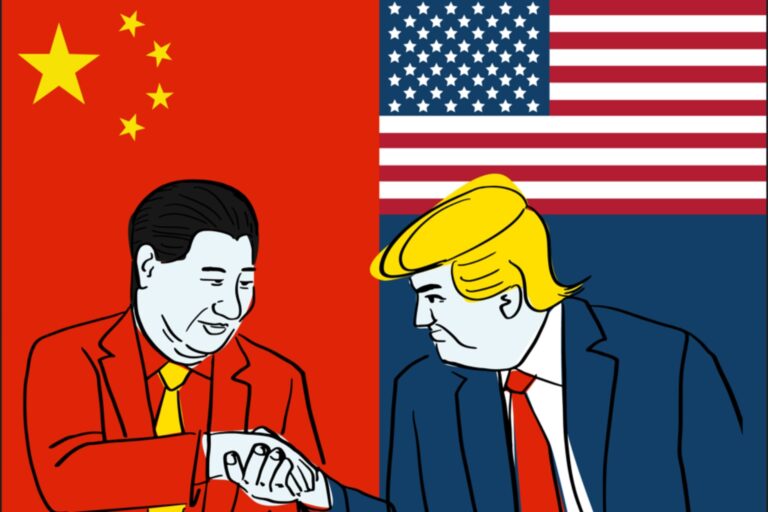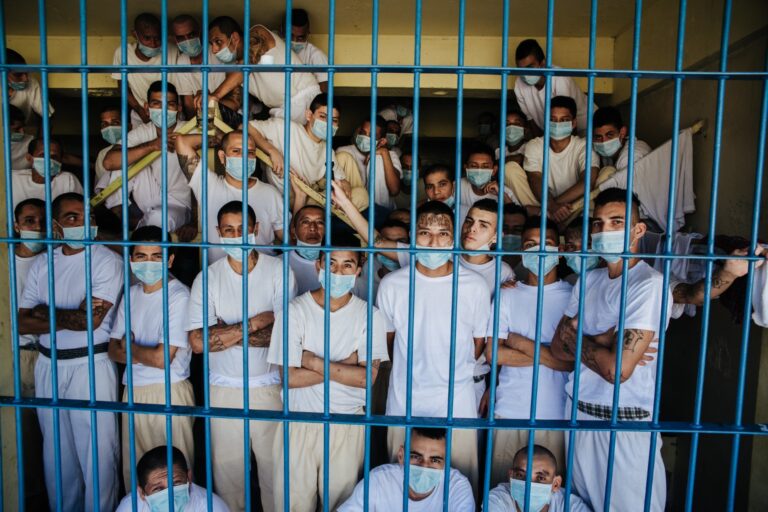(Photo by Kyle Simourd)*
Christoph Erber
The 1970 Chilean presidential election caused a political earthquake on both sides of the Atlantic. The fact that with Salvador Allende for the first time an ardent Marxist had democratically captured the highest office of a country was received with great misgivings in both Washington and Bonn. Concerns over the protection of investments, expropriation of private property and a spread of communism in Latin America troubled the United States and West Germany alike. Yet, while agreeing on these broad parameters, the transatlantic partners differed significantly in their short-term foreign policy adaptation as Allende assumed office.
Within the Nixon administration, a widespread sense of alarm was predominant. Henry Kissinger’s deep conviction that Allende’s Unidad Popular (UP) government “represented a challenge to the United States and to the stability of the Western Hemisphere” was the driving notion of the Nixon administration’s foreign policy towards Chile.[1] Specifically, Washington feared a severe financial and political fallout: US investments in Chile totaled some one billion dollars and Allende appeared determined to question and oppose US hegemony in the Americas – potentially leading to a spillover of communism in the region.[2] Thus, as Haslam argues, the Nixon administration became increasingly “obsessed with overthrowing Allende,” as the alarmed hegemon pursued a two-fold strategy to undermine the consolidation of Chile’s Marxist government.[3]
Firstly, the United States intensified intelligence activity and covert actions to provoke a regime change. This approach explicitly rejected the possibility of finding a modus vivendi with Chile, as outlined in Henry Kissinger’s infamous National Security Decision Memorandum 93 of November 9, 1970. On the surface, Washington assumed a “cool and correct posture” towards Chile in order to prevent the Allende government from rallying support against open US hostility and potentially expedite regime consolidation.[4] In the background, however, the United States maximized pressure on Chile wherever possible to limit the UP government’s ability to “implement policies contrary to U.S. and hemispheric interests.”[5] Even before the new president officially assumed office, the CIA had unsuccessfully bribed the Chilean parliament in favor of another candidate and failed to instigate a military coup against Allende in October 1970.[6] Subsequently, the CIA initiated various covert action programs, such as large-scale support for Chilean fascist terrorist groups and media outlets, in order to undermine Allende.[7]
Secondly, Washington aimed to exert strong financial pressure to stifle Chile’s already struggling economy.[8] Dubbed an “invisible blockade” by the Allende government, the actual connection of this policy to the meltdown of the Chilean economy in the mid-1970s is disputed.[9] There is, however, no doubt that President Nixon was determined to “make the [Chilean] economy scream.”[10] In this context, a major factor was Chile’s dependence on foreign exchange and investment, particularly from the United States.[11] These inflows of external capital were crucial in order to cover frequent balance of payments shortfalls due to the volatility in the price of copper – Chile’s principal export good.[12] Following Washington’s restrictive policy, U.S. foreign aid to Chile plummeted since both the US Agency for International Development and the Export/Import Bank blocked all development loans and commercial credits after Allende took office.[13] Moreover, since a considerable share of Chile’s industrial equipment were US imports, Washington also required Santiago to pay for these in cash up-front to further constrain Chile’s ability to reflate its economy and to protect American business interests.[14]
Compared to Washington’s (c)overt assertiveness towards Chile following Allende’s election, Bonn’s foreign policy was distinctly more reserved. Unlike the US, West Germany’s diplomatic priorities certainly were not as focused on containing the spread of communism in Latin America. Instead, Chile was mainly a market for the emerging German economy – both as a source of natural resources (particularly copper) and for German products and investments. Indeed, one fifth of Chile’s 1970 exports were shipped to West Germany.[15] As a result, the Federal Republic certainly had a vested interest in Chile but nevertheless opted for a more moderate foreign policy response than the United States – why?
One factor behind this more moderate response was the Social Democratic government in Bonn. Indeed, leading West German politicians openly sympathized with the new Chilean regime on ideological grounds.[16] One crucial personality was Erhard Eppler, head of the German Ministry of Development (Bundesministerium für wirtschaftliche Zusammenarbeit or BMZ), who argued that economic and development aid should not be used for short-term diplomatic considerations.[17] Another crucial personality in this regard was Hans Matthöfer, Parliamentary State Secretary at the BMZ. A strong supporter of Allende’s policies and in close contact with a number of UP representatives, Matthöfer exerted significant influence on West German development policy towards Chile during the Allende years.[18] Accordingly, the BMZ even approved a small number of new development projects in 1971, since they were deemed necessary and beneficial.[19]
Yet, the main reason for Bonn’s restraint were deep concerns about the pending diplomatic recognition of the German Democratic Republic (GDR) by the new Chilean government. At the time, the 1955 Hallstein doctrine, which stipulated that the Federal Republic would break diplomatic relations with any state that recognized the GDR, still was a guiding notion of West German foreign policy.[20] Accordingly, the prospects of an opening of diplomatic relations between Chile and East Germany caused West German diplomats a headache. Namely, Bonn feared that its relations with Chile might be impeded by the parallel activities of two German embassies and that Santiago’s recognition of East Germany might create a domino effect, allowing the GDR to expand its influence across Latin America and adversely affect West German economic interests in the region.[21]
Immediately after Allende’s election, West Germany thus undertook every effort to dissuade the new Chilean government from recognizing the GDR. In his first encounter with President Allende, West German Ambassador Osterheld went to great lengths in stressing the good relations between the Federal Republic and Chile, particularly stressing the economic importance of the Federal Republic as Chile’s second most important copper consumer.[22] Moreover, Bonn held out the prospect of future credit approvals for two development projects, namely a dam on the Elqui River as well the expansion of a petrochemical plant in Concepción.[23]
Ultimately, however, these West German diplomatic efforts were in vain. President Allende certainly recognized the Federal Republic’s importance for the development of Chile’s economy and therefore was hesitant to risk Bonn’s sympathy, particularly in the face of the United States’ growing financial pressures.[24] Nevertheless, Chile also desired to reduce its dependence on the West. For this purpose, the GDR did indeed appear as one of the most attractive partners in the Eastern Bloc due to its relatively high degree of industrialization and economic capabilities.[25] In fact, the Chilean Ministry of Foreign Affairs meticulously contemplated whether the GDR would be able to replace the economic benefits and technological assistance that Chile received from West Germany.[26] Given that these Chilean considerations were fueled by increased East German diplomatic courtship, the opening of diplomatic relations was only a matter of time. Moreover, Bonn was reluctant to commit to a firm stance on this issue, as Chancellor Brandt stated already in October 1968 that the West German government would not cut development assistance to Chile if the GDR were recognized.[27] When Brandt met with President Allende’s special envoy to West Germany in December 1970, the German chancellor reiterated that “the world will not stop spinning” if Chile were to recognize the GDR, but requested that Chile should at least consider West German interests and therefore proceed gradually.[28] Indeed, according to Chilean Foreign Minister Coldomiro Almeyda, Chile gave “special attention to maintaining friendly ties” with West Germany to mitigate the economic effects of a potential blockade by the United States.[29]
Accordingly, Bonn’s reaction to the opening of diplomatic relations between Chile and the GDR on March 14, 1971, was fairly moderate. Having anticipated this development for months, West German diplomats were not surprised when Allende finally bowed to UP internal party pressure to recognize the GDR.[30] While West Germany publicly criticized this step and announced a “general review” of its diplomacy towards Chile, Bonn had no intention to actually “punish” Chile – and subtly communicated this to Santiago as well.[31] In particular, concerns about detrimental economic repercussions, such as a deterioration of the copper supply and further seizures of German companies and properties convinced the Federal Republic that a modus vivendi with Chile had to be reached.[32] Hence, the consensus in Bonn was that if West German economic interests in Chile were not to be surrendered entirely to the GDR, Allende had to be tolerated.[33]
In conclusion, is noteworthy that Bonn did pursue such a pronounced degree of self-determination from Washington in shaping its relationship with the new Allende government. In contrast to the United States’ confrontational reaction, Bonn responded more moderately as the Federal Republic attempted to remain in good standing in Chile. While the Nixon administration refused to find a modus vivendi the Allende regime, the Brandt government adapted to the new situation to safeguard its interests in the best way possible. This more reserved response to the election of Allende thus reflected a confident pursuit of the Federal Republic’s own economic and diplomatic interest in a region that traditionally was considered Washington’s backyard. The West German approach thus constituted one of many examples for the increasing emancipation of Bonn’s foreign policy from Washington in the 1970s and anticipated the more frequent differences that the two transatlantic partners exhibited in their economic and political priorities in this decade.
Christoph Erber is a second-year M.A. candidate at Johns Hopkins School of International Studies (SAIS) with a concentration in European and Eurasian Studies. His research focus centers around issues regarding German foreign and security policy in general and the German-American relationship in particular. In this context, he is currently associated with the German Marshall Fund of the United States and the Center for Transatlantic Relations at SAIS. He holds a Bachelor’s degree in Economics and Social Sciences from the Free University of Bolzano, Italy.
Source: https://commons.wikimedia.org/w/index.php?curid=3233126
Licensed for use under Creative Commons Attribution 2.0 Generic license: https://creativecommons.org/licenses/by/2.0/legalcode
________________________________________________________________________________
[1] Henry Kissinger, Years of Upheaval (Boston: Little, Brown, 1982), 376.
[2] Henry Kissinger to President Richard Nixon. November 5, 1970. “Memorandum to the President.” accessed October 26, 2016, http://nsarchive.gwu.edu/NSAEBB/NSAEBB110/chile02.pdf.
[3] Jonathan Haslam, The Nixon Administration and the Death of Allende’s Chile: A Case of Assisted Suicide (London: Verso, 2005), 72.
[4] Henry Kissinger. November 9, 1970. “National Security Decision Memorandum 93.” accessed October 02, 2016, http://nsarchive.gwu.edu/NSAEBB/NSAEBB8/ch09-01.htm.
[5] Kissinger, National Security Memorandum 93.
[6] Haslam, The Nixon Administration, 67-78.
[7] Róbinson Rojas, The Murder of Allende and the End of the Chilean Way to Socialism (New York: Harper & Row, 1976), 111-115.
[8] Kissinger, National Security Memorandum 93.
[9] Paul Sigmund, “The ‘Invisible Blockade’ and the Overthrow of Allende.” Foreign Affairs 52, no. 2 (1974): 322-340.
[10] Haslam, The Nixon Administration, 98.
[11] Ibid., 98-126.
[12] Theodore Moran, Multinational Corporations and the Politics of Dependence: Copper in Chile. (Princeton: Princeton University Press, 2014), 153-225.
[13] Sigmund, “The ‘Invisible Blockade,’” 332-4.
[14] James Petras and Morris Morley, The United States and Chile: Imperialism and the Overthrow of the Allende Government (New York: Monthly Review Press, 1975), 89.
[15] Inga Emmerling, Die DDR und Chile (1960–1989). Außenpolitik, Außenhandel und Solidarität (Berlin: Christoph Links, 2013), 261.
[16] Clodomiro Almeyda, “The Foreign Policy of the Unidad Popular Government,” in Chile at the Turning Point: Lessons of the Socialist Years, 1970-1973, ed. Federico Gil et al. (Philadelphia: Institute for the Study of Human Issues, 1979), 93.
[17] Georg Dufner. Partner Im Kalten Krieg: Die Politischen Beziehungen zwischen der Bundesrepublik Deutschland und Chile (Frankfurt a.M.: Campus Verlag, 2014), 221.
[18] Der Spiegel, “Chile-Hilfe – Charakter klarmachen,” April 14, 1975, accessed October 02, 2016, http://www.spiegel.de/spiegel/print/d-41558881.html.
[19] Georg Dufner, “Chile als Partner, Exempel und Prüfstein,” Vierteljahrshefte für Zeitgeschichte. 61:4 (2013): 538.
[20] Rüdiger Marco Booz, “Hallsteinzeit“ – Deutsche Außenpolitik 1955–1972 (Bonn: Bouvier, 1995).
[21] Akten zur auswärtigen Politik der Bundesrepublik Deutschland 1971, Volume I (Munich: Oldenbourg, 2002), 302-304.
[22] Akten zur auswärtigen Politik der Bundesrepublik Deutschland 1970, Volume III (Munich: Oldenbourg, 2001), 1856-58.
[23] Emmerling, Die DDR und Chile, 149.
[24] Booz, Hallsteinzeit, 148-50.
[25] Emmerling, Die DDR und Chile, 261.
[26] Dufner, Partner Im Kalten Krieg, 208.
[27] Wilhelm Hofmeister‚ “Die deutschen Christdemokraten und Chile”, Auslandsinformationen, Konrad Adenauer Stiftung, 2004, 32.
[28] Dufner, Partner Im Kalten Krieg, 210-11.
[29] Clodomiro Almeyda, ”The Foreign Policy of the Unidad Popular Government,” in Chile at the Turning Point: Lessons of the Socialist Years, 1970-1973, ed. Federico Gil et al. (Philadelphia: Institute for the Study of Human Issues, 1979), 92.
[30] Akten zur auswärtigen Politik der Bundesrepublik Deutschland 1971, Volume I (Munich: Oldenbourg, 2002), 298-9.
[31] Akten zur auswärtigen Politik der Bundesrepublik Deutschland 1971, Volume I (Munich: Oldenbourg, 2002), 614-616.
[32] Akten zur auswärtigen Politik der Bundesrepublik Deutschland 1971, Volume I, (Munich: Oldenbourg, 2002), 614-616.
[33] Emmerling, Die DDR und Chile, 188.



